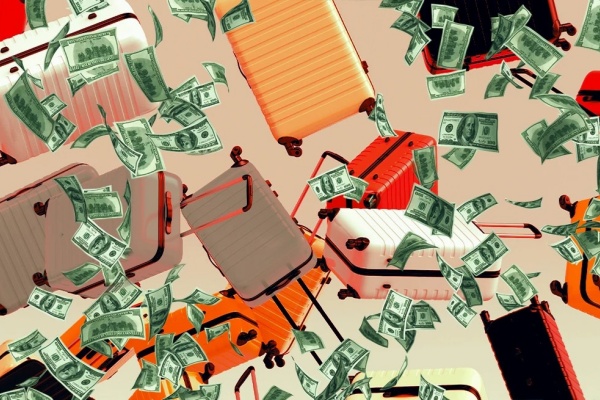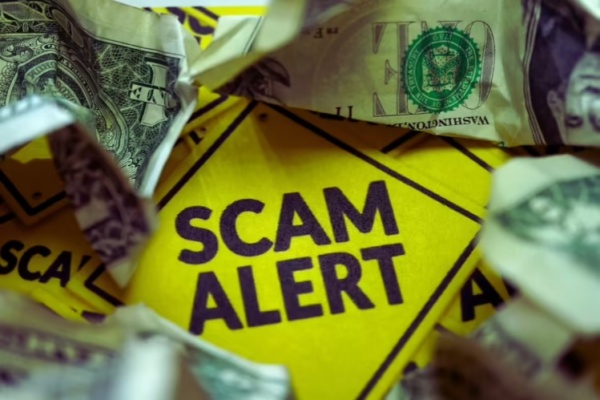
Why Super Cheap China Tours Are a Costly Deception
By Leo
With over 20 years of firsthand experience in China’s travel industry, I’ve guided countless adventurers through its bustling cities and ancient wonders. From the Great Wall to the Terracotta Warriors, I’ve seen the magic this country holds.
But now, I want to share a crucial warning based on the current landscape: those alluring “super cheap” China tours that promise all-inclusive accommodations, high-speed trains, and flights? They’re almost always a trap laced with forced shopping. If you’re searching for “cheap China tours from USA” or “best budget trips to Beijing and Xian,” stick with me—I’ll break it down professionally and help you travel smarter.
What Are Super Cheap China Tours? —Decoding the Deception
The Hidden Business Model Behind Bargain-Basement Prices
You’ve likely come across those enticing offers: a 10-day tour of China, covering major cities, internal flights, and 5-star hotels, all for an unbelievably low price like $299 or $999. As someone who’s booked and reviewed hundreds of itineraries, I can tell you these deals aren’t the bargains they claim. From my extensive experience and drawing from recent reports and traveler feedback on sites like TripAdvisor and Reddit, these tours are heavily subsidized by the Chinese government or operators to boost tourism post-pandemic. But here’s the catch: the low price is a lure.
Operators recoup costs by embedding “forced shopping” stops, where you’re pressured into buying overpriced jade, silk, tea, or TCM (traditional Chinese medicine) items. I’ve seen groups herded into these “government facilities” for hours, turning a dream vacation into a high-pressure sales pitch. If it includes all accommodations and transfers at rock-bottom rates, it’s not sustainable without these hidden revenue streams—trust me, there’s no free lunch in travel.
These tours are designed to attract budget travelers who want to see China’s wonders without breaking the bank. However, they are often run by untrustworthy operators who make their profit through undisclosed fees, forced shopping, and other deceptive practices. The promise of adventure for a fraction of the cost often hides a series of traps designed to part you from your money.

The Pervasive Pitfall: Forced Shopping Experiences
How Your Vacation Becomes a Mandatory Shopping Spree
The term “forced shopping” might sound dramatic, but it accurately describes the experience. Even though the China National Tourism Administration has banned undisclosed shopping stops, these practices persist. On these “super cheap” tours, you’ll often find yourself spending significant portions of your day at stores selling jade, tea, silk, or traditional Chinese medicine. These aren’t just quick stops; you can be pressured to stay until a certain amount of money has been spent, or until your guide earns their commission.
The pressure can be subtle or overt. Guides, whose bonuses are often tied to your purchases, might claim these are the “highest quality” or “wholesale price” locations. They might imply that the government subsidizes your tour to encourage spending at these specific shops. I’ve heard countless stories, and even official reports, of tourists feeling trapped, facing subpar service, and being told they can’t leave until they buy something. There have even been instances where tourists, including high-ranking officials traveling incognito, were compelled to shop. What’s worse, the items sold are often overpriced, fake, or of low quality.
Picture this: You’re excited for the Forbidden City, but instead, your guide detours to a “factory tour” that’s really a commission-based shop. As an expert, I advise: If the tour’s price undercuts market rates (think $100/day all-in), it’s funded by your wallet through inflated purchases. Avoid deals from outfits like TripADeal or Groupon knockoffs; they’re riddled with complaints about this very issue.
Beyond the Bazaar: Other Hidden Traps and Concerns
Unveiling the Layers of Deception in Low-Cost Tours
Forced shopping isn’t the only concern with these deeply discounted tours. I’ve observed several other issues that can significantly detract from your travel experience:
Undisclosed Fees and Surcharges
The low upfront price rarely covers everything. Expect surprise fees for meals, transportation, or even entry to advertised attractions. These hidden costs can quickly add up, turning your “super cheap” tour into a financial burden. For example, airport transfers might not be included, or there might be compulsory tipping pools.
Compromised Safety and Security
To keep costs down, these tours might cut corners on safety. This could mean crowded buses, poorly maintained vehicles, or rushed itineraries that increase the risk of accidents. Accommodations might be substandard or even unsafe. In 2025, with China’s crackdown on illegal practices, reputable tours avoid this, but super cheap ones persist underground.
Substandard Services and Accommodations
A cheap price often means a lower standard of service. Hotels might be inconveniently located or of poor quality, meals might be rushed and unappetizing, and the overall pace of the tour can be exhausting. You might find promised hotels downgraded last-minute.
Lack of Flexibility and Authenticity
Your itinerary will be rigid, dictated by the shopping stops, leaving little time for genuine cultural immersion or exploring local life at your own pace. Key sites might be rushed or replaced with “cultural factories.”
Fake Qualifications and Misleading Advertising
Some untrustworthy operators may misrepresent their credentials or use deceptive advertising to lure travelers. They might claim to be licensed or government-approved when, in reality, they’re operating illegally. They’ll use fake photos or misleading ads to lure you in, and once you’ve booked, they’ll change the itinerary or even the guide.
Transportation Traps
Be cautious of unlicensed “black” taxis or ride-hailing services that might overcharge you or take unsafe routes. Always insist on using the meter in licensed taxis, and pre-negotiate fares for services like cycle rickshaws.

How to Plan a Transparent and Enjoyable China Trip
Having seen the pitfalls firsthand, I strongly advise a cautious approach to any tour that seems too inexpensive. Here’s how to ensure a truly memorable and transparent travel experience in China:
Prioritize Reputable Operators
Seek out tour companies with strong reputations and explicit “No Shopping” policies. Many legitimate companies now offer tours that focus on cultural experiences rather than sales. China Highlights, for example, has implemented a “No Shopping” policy since 2013, aiming to eliminate wasted time and pressure. Intrepid Travel and China Tours.com are other examples that guarantee no forced shopping.
Scrutinize the Travel Proposal
Demand a clear, detailed itinerary before booking. Ask specific questions about inclusions and exclusions. Be wary of vague terms like “specialty visits,” “cultural demonstrations,” or “unique shopping experiences,” as these are often euphemisms for shopping stops. If an agent refuses to name all stores before you pay, walk away.
Read Reviews, But Wisely
While reviews are valuable, be mindful that some tourists on very cheap tours might still rate them highly, overlooking the shopping aspect due to the initial low price. Look for reviews that specifically mention the presence or absence of forced shopping. Utilize forums like TripAdvisor and Reddit for real-world experiences.
Understand the True Cost of Travel in China
China, while historically cheap to travel, is seeing rising costs due to increased tourism, higher admission fees for attractions, and a strengthening currency. A realistic budget for a quality tour will reflect this. A genuine tour costs around $200-300/day; anything less likely skimps on quality.
Consider Independent or Small Group Travel
Independent travel offers maximum flexibility and control. If you prefer a guided experience, small group tours often provide a more personalized and authentic journey with less pressure. Booking private guides can also be a cost-effective and flexible option.
Be Prepared for Digital Payments
China is largely a cashless society. Be ready to use mobile payment apps like WeChat Pay and Alipay. Learn basic Alipay/WeChat Pay setup or carry a fee-free card.
Always Get Travel Insurance
No matter how you travel, comprehensive travel insurance is a non-negotiable safety net for unforeseen circumstances.
Verify Licenses and Credentials
Ensure the tour operator is licensed by the China Tourism Administration (CTA) and that your guide is certified. This can help protect you from scams and ensure that you’re working with a reputable company.

| Red Flag Phrase | True Meaning (Potential Trap) |
| “Government-approved factory visit” | A shop where guides receive commissions for your purchases, disguised as an official visit. |
| “Local craft cooperative demonstration” | Another euphemism for a planned shopping excursion designed to extract money from tourists. |
| “Optional excursions/upgrades” | Activities that should be included but are charged extra, or are subtly made compulsory. |
| “Special opportunity to buy” | High-pressure sales pitch for overpriced or low-quality goods. |
| “Time for a cultural experience at a jade/silk/pearl/TCM center” | Mandatory shopping stop at a commission-based store. |
| “Unique shopping experiences” | Vague wording to hide forced stops at pre-arranged commercial venues. |
If you see these phrases, expect commission stops. A truly transparent tour will explicitly state “No Shopping” or clearly list all inclusions without hidden agendas.
What to Do If You’re Caught in a Tour Trap
If, despite your best efforts, you find yourself on a tour that feels like a trap—excessive forced shopping, unexpected fees, or refusal to visit advertised sites—here’s what you can do:
Document Everything
Keep records of the itinerary, payments, names, locations, and specific issues encountered. Take photos or videos if possible and safe. This documentation can be invaluable if you need to file a complaint or seek a refund.
Communicate with the Operator
Calmly express your concerns to the guide or contact the tour company directly. Many operators will try to resolve the issue to avoid negative reviews or legal action. Escalate to the agency immediately; request adherence to the written itinerary.
Refuse Participation
You generally have the right to refuse to enter shops or purchase items, though you may face pressure. Stay polite but firm, and remember that your comfort and safety should always come first. Politely but firmly refuse to participate in unwanted activities.
Report the Issue
If unresolved, report the incident to the local tourism administration or consumer protection agency in China. Contacting your embassy or consulate might also be helpful.
Share Your Experience
Leave factual reviews on travel websites to warn fellow travelers. Your feedback can help others avoid the same pitfalls.
China is a country that offers some of the most incredible travel experiences in the world. However, the allure of “super cheap” tours often comes at a significant cost—your time, money, and authentic experience.
After working in the travel industry for so many years, my message is clear: a deal that seems too good to be true often is. By being informed about these traps, meticulously researching your options, and prioritizing reputable operators with transparent policies, you can ensure your trip to China is filled with genuine cultural immersion and unforgettable moments, free from unexpected sales pitches and hidden frustrations. Choose wisely, and your adventure will truly be one for the books.
Explore More: